Program of Study
The Michigan Law SJD is designed to be completed in three to five years. Students typically spend three years in residence as full-time degree candidates in Ann Arbor, with full sponsorship by the Center for International and Comparative Law.
During their time in residence, they attend a weekly colloquium of Michigan Law Research Scholars and fellow Michigan Law SJD students, present their works-in-progress at the colloquium, and work diligently on their dissertations. They may also sit in on Michigan Law classes, attend panels and workshops, and otherwise take part in the vibrant life of the Law School.
At the end of the first year, students are expected to pass to formal candidacy with the support of their SJD committee. Once they become SJD candidates, they have up to five years to complete the degree. SJD candidates may continue their work in residence in Ann Arbor, or they may go elsewhere in the world, at their discretion.
Residency benefits include a dedicated office or private workspace in the Center for International and Comparative Law research suite and access to all of the on-campus resources at Michigan Law. The first three years of residency are also supported with generous fellowships to cover tuition and living expenses.
The Michigan Law SJD is conferred after candidates pass an oral exam and their dissertation committee certifies the written work is of publishable quality. A dissertation is typically deemed to be of publishable quality if it demonstrates substantial independent research in law, is an original and significant contribution to scholarship in the field, and is a full-length, book-style monograph or its equivalent in academic articles.
The Dissertation Committee
SJD students are admitted with their SJD dissertation chair named in the offer letter. Soon after matriculating, students work with their dissertation chair to select two other professors as members of the dissertation committee. While the chair must be a tenured Michigan Law professor and another committee member must be either a tenured or tenure-track Michigan Law professor, the third member of the committee can be a tenured or tenure-track professor from any of the following:
- The University of Michigan Law School
- Any other widely respected law school, foreign or domestic
- Any non-law department at any college or university, foreign or domestic, as long as the professor has a PhD or professional equivalent
The dissertation committee will be responsible for advising the student for the duration of the degree, assessing the student’s work, approving advancement through the program, and certifying conferral of the degree.
Supplemental Opportunities
Michigan Law SJD students have numerous resources at their disposal. Some will participate in the Student Scholarship Workshop (LAW 860), some will join the University’s Graduate Teacher Certificate Program offered by the Center for Research on Learning and Teaching, some will become editors on our student journals, some will co-teach or guest lecture in Michigan Law classes, and all will contribute to the annual Michigan Law Junior Scholars Conference. Additionally, a few SJD candidates are hired in various leadership positions for the program.
Costs and Financial Support
Michigan Law is proud to support generous funding for in-residence SJD students who do not have outside sources of support. Here is the typical Michigan Law support for tuition and living expenses for each of our SJD students. Individual financial support from the Law School may vary, but will be determined at the time of admission to the program.
-
First Year
Tuition and Mandatory Fees
- Covered by the Michigan International and Comparative Law Scholarship, unless the student secures outside funding.
Living Expenses
- Michigan International and Comparative Law Fellowships cover food, housing, transportation, and other typical living expenses, as determined by our Office of Financial Aid.
- For example, in 2024-25, SJD students received approximately $2,900 per month.
-
Second and Third Year
Tuition and Mandatory Fees
- Waived for candidates making satisfactory progress.
Living Expenses
- Michigan International and Comparative Law Fellowships continue for in-residence candidates.
-
Fourth and Later Years
Tuition and Mandatory Fees
- Waived for candidates making satisfactory progress.
Living Expenses
- Michigan International and Comparative Law Fellowships will be available for in-residence candidates only in exceptional circumstances and based on availability.

SJD students are integrated in the research and faculty life of the school and benefit from dedicated events as well as academic job market workshops.
SJD Candidates
-
Avaskhan Asanaliyev
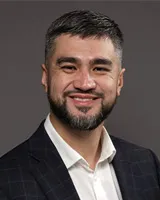
Avaskhan Asanaliyev is a Doctor of Juridical Science (SJD) candidate at the University of Michigan Law School. Under the supervision of Professor Vikramaditya S. Khanna, the William W. Cook Professor of Law, Avaskhan currently focuses on enhancing international commercial dispute resolution mechanisms amidst geopolitical tensions and sanctions.
Avaskhan’s teaching activities include courses on contracts, mergers and acquisitions, and international commercial transactions. He is also a practicing lawyer with significant experience working for international law firms. His professional experience covers cross-border mergers and acquisitions transactions; he regularly advises international investors on the establishment of joint ventures and the acquisition and sale of equity or assets of subsoil use and mining companies.
As an SJD candidate at the University of Michigan Law School, Avaskhan received an International and Comparative Law Scholarship and served as the Managing Articles Editor for the Michigan Journal of International Law (MJIL). He also acquired an LLM (Master of Laws) degree from Duke University School of Law and received an international scholarship that funded his studies at Duke and, prior to that, at the University of Hong Kong (Summer Institute in Transnational Law). His academic journey began at KAZGUU University, where he earned an LLB in International Law, graduating summa cum laude. His studies there were supported by a government scholarship.
Fields of Academic Interest
Avaskhan’s areas of interest include International Commercial Dispute Resolution, Commercial Law, International Business Transactions, Cryptocurrency, Blockchain and Law, Business Associations, International Law, Contracts, and Mergers and Acquisitions.
Dissertation Project
In his research, Avaskhan is exploring the transformation and enhancement of international commercial dispute resolution mechanisms in the face of evolving geopolitical tensions and international sanctions. He focuses on the interplay between international commercial courts and arbitration systems, analyzing their efficiency, enforceability, and adaptability under complex international scenarios.
Additionally, he examines the role of common-law judiciary in the development of corporate governance mechanisms globally. The biggest challenge of Avaskhan’s current research is to elaborate on the required legal mechanisms that would provide sufficient guarantees to investors willing to operate in a region affected by international sanctions. By incorporating perspectives from various jurisdictions, he seeks to bridge traditional legal frameworks with innovative solutions to uphold the integrity and effectiveness of dispute resolution amidst challenging global conditions.
Doctoral Committee
- Prof. Vikramaditya S. Khanna, William W. Cook Professor of Law, University of Michigan Law School (Committee Chair)
- Prof. Nicholas C. Howson, Pao Li Tsiang Professor of Law, University of Michigan Law School
- Prof. Julian D. Mortenson, James G. Phillipp Professor of Law, University of Michigan Law School
Education
- Doctor of Juridical Science (SJD) Candidate, University of Michigan Law School
- Research Scholar, University of Michigan Law School
- LLM, Duke University School of Law
- Certificate in Transnational Law, University of Hong Kong, Asia-American Institute
- LLB in International Law (JD equivalent), KAZGUU University
Languages
- Kazakh - native
- Russian - native fluency
- English - fluent
- Ukrainian - intermediate
Contact
-
Kushagr Bakshi
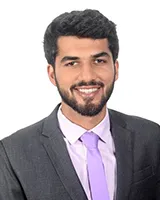
Kushagr Bakshi is a Michigan International and Comparative Law Scholar and an SJD student at the University of Michigan Law School, where he completed his LLM Degree in 2022. During the LLM Program, Kushagr worked as a Research Assistant to Professor Catharine MacKinnon, the Elizabeth A. Long Professor of Law, and as a Faculty Research Assistant at the Michigan Law Library. He also served on the board of the American Constitutional Law Society and as an Associate Editor for the Michigan Journal of International Law and the Michigan Journal of Law and Society.
Kushagr obtained his first degree in law from the West Bengal National University of Juridical Sciences. While in law school, he worked as a teaching assistant for Jurisprudence for two years and served as an Editor for the Journal of Indian Law and Society. Prior to coming to Michigan Law, Kushagr spent two years as an Associate in the Mergers and Acquisitions team of a law firm in India.
His current research focuses on the theory and constitutional structures which define Indian federalism. He is currently serving as an Executive Legal Content Editor for the Michigan Journal of Law and Society.
Fields of Academic Interest
Comparative Constitutional Law, Legal History, Legal and Political Theory and International Law. Kushagr is also interested in interdisciplinary approaches to legal research which combine methods and insights from disciplines such as anthropology, history and political science to the analysis of legal structures.
Dissertation Project
Kushagr’s dissertation project relates to recent constitutional changes in India which abrogated the autonomous status of Kashmir. Using Kashmir as an exemplar of an asymmetrically federal arrangement, the project looks to reexamine the political and constitutional theory which undergirds Indian federalism. Through a comparative analysis of similar structures in other countries, Kushagr’s dissertation aims to understand the role of federal structures in strengthening democratic decision making in plural societies.
Doctoral Committee
- Prof. Daniel Halberstam, Eric Stein Collegiate Professor of Law, University of Michigan Law School- Committee Chair.
Education
- University of Michigan Law School (LLM, 2022)
- West Bengal National University of Juridical Sciences (B.A LL.B, 2019)
Languages
English, Hindi, Marathi, Kashmiri
Contact
-
Farshad Rahimi Dizgovin
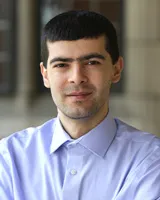
Farshad Rahimi Dizgovin is a Michigan Grotius Fellow and an SJD candidate at the University of Michigan Law School. He has joined the Michigan Journal of International Law since July 2019. Farshad got his first degree in law from the University of Tabriz (Iran) in 2013. There he co-authored a treaty on international sale contracts, which is a standard reference book for master and PhD students in Iran. The second edition of the book was published in 2016.
Thereafter, he acquired a Master degree in International Business Transactions from the University of Denver, Sturm College of Law, where he was awarded a prestigious “global scholarship.” In 2017, Farshad obtained his second master from the University of Michigan Law School, specializing in international investment and financial law. At Michigan, he was granted a famous Michigan Grotius Fellowship covering his tuition and living expenses.
Farshad has worked in both government and private sectors. He has worked for almost a year in the Securities and Exchange Organization of Iran as a legal counsel. He has also been a legal counsel at Parthian Investment Advisors where he was focused on projects in the capital market and international finance. At the same time, Farshad worked in Sabeti & Khatami law firm as a legal associate where he was engaged in complicated cases dealing with, among others, damages claim, doing due diligence in the context of foreign direct investment, and corporate-related issues.
He has extensively published in top tiers domestic and international law reviews, such as Virginia Journal of International Law, American Society of International Law Insights, Florida Journal of International Law, Uniform Law Review (Oxford), and Cambridge Journal of International Law (online). His most recent paper is forthcoming in the Journal of Securities Quarterly (Iran), which is expected to make a significant contribution to the development of the capital market in Iran.
Fields of academic interest
Farshad’s areas of interest include financial law, investment law, international law, contract law, and arbitration.
Dissertation project
Farshad’s dissertation attempts an integrated remedial approach to balancing competing interests in investment law. He argues that the current literature unsatisfactorily seeks the balance only in the investor-state relationship because the legitimacy crisis does not arise only from the investor-state relationship. Instead, he puts forward that one must go beyond the investor-state relationship to include the investor-local community relationship, the host state-nationals, as well as the relationship between the host and home state in the balancing exercise. To achieve this, he plans to develop and propose an integrated contract model of remedies to international investment law in which the legal concepts are structured in three stages—that is, the jurisdictional stage, the merits stage and the liability stage.
Doctoral committee
- Prof. Steven R. Ratner, Bruno Simma Collegiate Professor of Law, University of Michigan Law School - Committee Chair
- Prof. Julian D. Mortenson, University of Michigan Law School
- Prof. John A.E. Pottow, John Philip Dawson Collegiate Professor of Law, University of Michigan Law School
Education
- LLM, University of Michigan Law School, 2017
- LLM, International Business Transactions, University of Denver, Sturm College of Law, 2015
- LLB, University of Tabriz, 2013
Languages
- Azerbaijani (Native)
- Turkish (Native)
- Farsi (Native)
- English (professional)
- Arabic (reading)
Contact
-
Lukáš Hrdlička
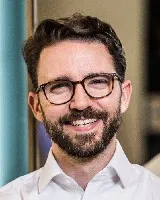
Lukáš is an S.J.D. student at the University of Michigan Law School. Before his S.J.D studies, he studied at Charles University in the Czech Republic where he received his Ph.D. in taxation and financial markets regulation.
In his research, Lukáš deals with issues concerning taxation and financial markets regulation. He received the Hlávka Foundation award for the best law school student and Bolzano Prize from the rector of Charles University for his dissertation, Hybrid Mismatches after the ATAD.
Since 2021, Lukáš has been appointed as a tax counselor to the OECD on behalf of the Czech Republic. At the OECD, Lukáš has covered many OECD tax initiatives on technical and political levels. During his posting, Lukáš joined the OECD/G20 Two Pillars Project negotiations at the Task Force on the Digital Economy (Pillar 1), Working Party 11 (on Aggressive Tax Planning, Pillar 2), and the Inclusive Framework on BEPS meetings as a national delegate. Due to this work, Lukáš also took part in the negotiations of the EU Pillar 2 Directive at the EU by representing his country at the Working Party on Technical Questions – responsible for negotiating the text of the draft directive – and helped the Czech Presidency of the Council of the EU team in 2022 during the successful negotiations of the political agreement of the Council of the EU regarding this directive. Lukáš is now working with his colleagues on the implementation of Pillar 2 into national law as well as taking part in the negotiations at the EU and the OECD regarding the implementation work.
Besides his work in Paris and Brussels, Lukáš also has worked at the Czech Ministry of Finance and the Czech National Bank. In the Ministry of Finance, he worked on transposition of the Anti-Tax Avoidance Directive that implemented several actions from the OECD/G20 Base Erosion and Profit Shifting Project. While working for the Czech National Bank, Lukáš was part of a team supervising investment firms and investment funds in the Czech Republic in accordance with EU law and national legislation.
Fields of Academic Interest
- Taxation:
- International taxation (particularly Pillar 1 and 2, hybrid mismatches, CFC rules, GAARs)
- Income taxation (particularly division between labor and capital taxation and taxation of employees’ income and independent contractors’ income)
- EU financial markets regulation:
- MiFID II/MiFIR including algorithmic trading and high frequency trading regulation
- AIFMD
Dissertation Project
Lukáš’s dissertation project analyzes the OECD/G20 Pillar Two Project and its interaction with other rules of international taxation and initiatives with the goal to achieve an international tax system that is more efficient and just.
Doctoral Committee
- Prof. Reuven S. Avi-Yonah, Irwin I. Cohn Professor of Law, University of Michigan Law School - Committee Chair
- Prof. Petr Janský, Associate Professor, Head of Department of European Economic Integration and Economic Policy, Institute of Economic Studies, Charles University
Education
- Ph.D., Charles University, Czech Republic, 2020
- Master in Law (eq. JD), Charles University, Czech Republic, 2016
Languages
Czech (native), English (professional), French (intermediary)
Contact
- Taxation:
-
Moshe Jaffe
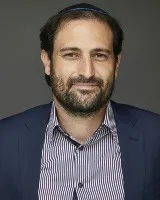
Moshe Jaffe is an S.J.D. student at the University of Michigan Law School and an LL.M. Graduate from Columbia Law School. Moshe is a constitutional law Adjunct Professor at the Academic Center of Law and Science in Israel and an Adjunct Professor at the Cardozo School of Law in New York. As an Israeli lawyer, Moshe represented dozens of cases before the Israeli Supreme Court with an emphasis on Religion and State, Human Rights, and National Security. Simultaneously, Moshe serves as a legal advisor for the IDF’s Department of the Legal Advisor to Judea and Samaria. Moshe also serves as an administrative judge on the Confiscation of Funds Committee of the Money Laundering Headquarters tribunal. Last year, Moshe participated as a research scholar in the University of Michigan Law School’s International and Comparative Law Research Scholar program.
Fields of Academic Interest
Moshe teaches and researches constitutional law issues. Moshe emphasizes his work on separation of powers, religion and state, human rights, and national security. Moshe focuses on comparative studies, in which he compares mainly the U.S., Israeli, and Hebrew legal systems.
Dissertation Project
Moshe’s research comparatively addresses the constitutionality and the use of proportionality tests in judicial review of tax legislation. The research focuses on three different judicial systems — Israel, the U.S, and Jewish Law. Alongside the main issue, the research addresses the questions of tax definitions and equality in tax law. The research’s main argument is that the Israeli proportionality doctrine is the most effective and correct instrument for applying judicial review to tax legislation. This stands in contrast to the use of the scrutiny doctrine, which struggles to adapt itself to the flexibility and balances that tax laws require.
Doctoral Committee
- Prof. Reuven S. Avi-Yonah, Irwin I. Cohn Professor of Law, University of Michigan Law School - Committee Chair
- Prof. Richard D. Friedman, Alene and Allan F. Smith Professor of Law, University of Michigan Law School
- Dr. Meital Pinto - Zefat Academic College School of Law
Education
- Research Scholar, University of Michigan, 2022
- L.L.M., Columbia University Law School, 2022
- Military Legal Officers Course, 2019
- L.L.M., The Hebrew University, 2017
- Mediator Certificate, 2015
- Israel Bar Association, 2013
- L.L.B., The Academic Center of Law and Science, 2013
Languages
Hebrew, English, Spanish, and French
Contact
-
Erick Fabian Guapizaca Jiménez
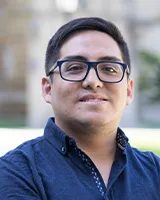
Erick, a Michigan International and Comparative Law Scholar, is currently pursuing an S.J.D. at the University of Michigan Law School, having completed an LL.M. in 2022.
During his LL.M. year, Erick was awarded the Myint Zan LL.M. Prize for his dedication to social justice and interdisciplinary pursuits. He also served as the LL.M. representative to both the Law School Student Senate and the International Law Society. Erick also represented the Law School as a Salzburg Cutler Fellow, presenting an introductory paper based on his upcoming doctoral dissertation, and worked as an Editor for the Michigan Journal of International Law.
Before joining Michigan Law, Erick worked in the judiciary branch and arbitration sector. From 2018 to 2019, he held the position of legal coordinator at the Center of International Arbitration and Mediation, affiliated with the Chamber of Industries and the Ecuadorian-British Chamber, where he served as a case manager for diverse domestic arbitration proceedings. In 2019, Erick was appointed as a law clerk to Justice Karla Andrade of the Constitutional Court of Ecuador. During his tenure, he supported drafting cases involving immigration and refugee law, indigenous rights, banking law, municipal tax law, and domestic arbitration.
Erick has been actively engaged in academic work since 2018. Alongside other alums from the Universidad San Francisco de Quito, he co-founded the USFQ Law Working Papers, an academic-legal series that continuously publishes original academic and scientific articles. He also authored and co-authored articles, book chapters, and online contributions in Spanish and English, with a focus on human rights, constitutional law, and legal issues concerning Constitutional Courts. Erick held a visiting lecturer position in the Master of Criminology program at Universidad Espiritu Santo, where he taught a course on Introduction to Deontology and International Law.
Fields of Academic Interest
Erick’s areas of interest include international economic law, international investment law, international human rights law, constitutional law, and the intersections between these fields. Moreover, Erick aims to shape an academic and professional career while acknowledging the importance of integrating other disciplines into the study of law, including but not limited to economics, sociology, and psychology. Through this holistic approach, Erick aspires to make meaningful contributions to advancing legal scholarship and the broader understanding of complex global challenges.
Dissertation Project
Erick’s research project explores the clash between states’ international obligation to consult indigenous peoples and the states’ obligations under international investment agreements in extractive-based investment projects. He will argue that the current International Investment Law framework inadequately safeguards indigenous peoples from the consequences of natural resource exploitation projects. To secure indigenous rights, Erick proposes that the unique safeguard lies in the international human rights law obligation to consult indigenous peoples and obtain their consent before approving the exploitation of non-renewable natural resources. However, Erick’s project will argue that domestic law often disregards this obligation, treating it merely as a formal requirement within the extractive cycle.
Overall, Erick intends to push for the conclusion of domestic private instruments, such as community benefits agreements, to alleviate the collision of these international obligations.
Doctoral Committee
- Prof. Julian Arato, Professor of Law and Director, Program on Law and the Global Economy, University of Michigan Law School – Committee Chair
- Prof. Steven R. Ratner , Bruno Simma Collegiate Professor of Law, University of Michigan Law School; Director, University of Michigan Donia Human Rights Center
Education
- University of Michigan Law School (LL.M., 2023)
- Diploma in Constitutional Law (Universidad Andina Simón Bolívar, Sede Ecuador, 2022)
- Diploma in Human Rights (Universidad Andina Simón Bolívar, Sede Ecuador, 2021)
- Diploma in Higher Education (Universidad del Azuay, 2020)
- Universidad San Francisco de Quito (Bachelor of law, 2019)
Languages
Spanish (native), English (professional), Italian (reading & speaking)
Contact
-
Kanchinadham Parvatheesam (PK)
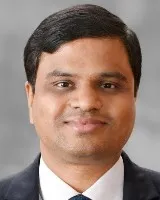
PK is a Michigan International and Comparative Law Scholar and an S.J.D. student at the University of Michigan Law School.
PK is a Management Graduate, Lawyer and Corporate Secretary. He has more than two decades of rich experience in the areas of Governance, Disclosure & Reporting, Risk Management, Ethics & Compliance and Stakeholder Management.
In India, PK has been associated with iconic companies that have set benchmarks in Corporate Governance (the Tata Group and Infosys). He currently serves as the Corporate Secretary and Chief Legal Officer (Corporate & Compliance) of Tata Steel. PK’s most significant responsibilities include advising the Board on Governance and ensuring that the Members of the Board are ably equipped with resources to discharge their fiduciary duties and corporate governance practices. PK is also responsible for the Compliance Function of Tata Steel and the legal requirements of the company in the areas of Governance, Antitrust, Corporate Actions and New Ventures. He also has oversight responsibility of the legal and governance matters of Tata Steel’s investment in Subsidiaries, Joint Ventures and Associate Companies in India and Overseas.
Prior to joining the Tata Group, PK served as the Corporate Secretary and Chief Risk & Compliance Officer of Infosys. At Infosys, he was responsible for the Governance, Risk and Compliance function (including compliance with SEC Rules and Regulations).
PK has and continues to be on various committees of the Regulatory, Industry and Professional Bodies that frame the governance principles for Corporates in India. PK was also on the committee that framed guidelines on Investor Relations for Central Public-Sector Enterprises in India.
Fields of Academic Interest
PK teaches and researches on Corporate Law, Corporate Governance and Securities Regulation. He is a Visiting Faculty at the National Law School of India University and offers a Seminar Paper on Corporate Governance and Practice. He is also an Adjunct Faculty at the Indian Institute of Corporate Affairs, an institution set up under the aegis of The Ministry of Corporate Affairs, Government of India, for providing astute and credible intellectual leadership in corporate regulation, governance and running sustainable businesses.
Dissertation Project
Corporate Governance is one of the most contemporary topics of our times and has lately generated enormous interest in India. Corporate Governance is a key element in improving economic efficiency and growth as well as enhancing investors’ confidence. Regulators in India are becoming very proactive in ensuring that organizations are well governed.
India has witnessed two decades of governance reforms. The country is now faced with the challenge of restructuring existing mechanisms for greater efficiency and creating an investment-friendly environment. PK views India’s governance model to be at a reflection point, and at this juncture, the key question he intends to address through his research is whether the existing governance mechanisms and the legal and regulatory frameworks in India, are (a) sufficient to meet internationally accepted corporate governance standards, attract overseas investment, and incite economic growth; and (b) sufficient to address the governance problems unique to India, i.e. disciplining the controlling shareholder and protecting minority interests, as against disciplining the management (as is the case in many developed countries).
Doctoral Committee
- Prof. Vikramaditya S. Khanna, William W. Cook Professor of Law, University of Michigan Law School - Committee Chair
- Prof. Adam C. Pritchard, Frances and George Skestos Professor of Law, University of Michigan Law School
- Prof. Umakanth Varottil, Associate Professor, The National University of Singapore Faculty of Law
Education
- Master of Laws (Corporate Governance and Practice), Stanford University
- Master of Business Administration, Massachusetts Institute of Technology
- Master of Business Laws, National Law School of India University
- Bachelor of Laws, Bangalore University
- Bachelor of Commerce (Hons), Sri Sathya Sai Institute of Higher Learning
- Associate Member of ICSI, The Institute of Company Secretaries of India
Languages
English (Professional). Telugu, Kannada, Tamil, and Hindi (Native)
Contact
-
June Kim
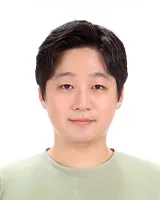
June’s research focuses on corporate compliance and violations, corporate governance, and law and economics. Inspired by his academic and professional background in business and law, he pursues interdisciplinary research at the intersection of law and the social sciences. Drawing on organizational theories from sociology, his research provides a unique and insightful understanding of the legal system and corporate practice.
After completing his Juris Doctor degree and gaining admission to the bar in South Korea, he served in dual capacities as a journalist and an attorney, roles in which he delved into critical legal issues surrounding corporate crimes and political corruption. This immersive professional experience ignited his research interest in these areas.
Fields of Academic Interest
Corporate and securities law, law and social sciences
Dissertation Project
June’s dissertation project examines the relationship between the institutional environment and corporate misconduct. Drawing on organizational theories, he seeks to understand the dynamics of why organizations commit misconduct and under what circumstances they shift towards compliance. For the empirical analyses, he uses a blend of machine collected data and hand collected data on court trials. By employing panel regression analyses, this project aims to shed light on the mechanisms that contribute to corporate recidivism as well as the factors that influence the effectiveness of deterrent measures.
Doctoral Committee
- Prof. Vikramaditya S. Khanna, William W. Cook Professor of Law, University of Michigan Law School – Committee Chair
- Prof. Adam C. Pritchard, Frances and George Skestos Professor of Law, University of Michigan Law School
Education
- LL.M., University of Michigan Law School, 2024
- J.D., Yonsei University Law School, 2015
- B.B.A., Yonsei University School of Business, 2012
Languages
Korean, English
Contact
-
Lorenzo Giovanni Luisetto
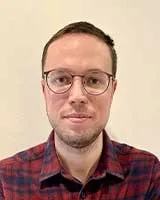
Dr. Lorenzo Giovanni Luisetto is a Michigan International and Comparative Law Scholar and S.J.D. student at the University of Michigan Law School, where he also completed a research stay as a Michigan Grotius Research Scholar in 2020-2021.
Before joining Michigan Law, Lorenzo was a research fellow at the University of Trento, Faculty of Law, where he got his Ph.D. in Labor and Employment Law in May 2022.
In 2020 he was a Visiting Scholar at the Katholieke Universiteit Leuven, and in 2018 he was a Visiting Researcher at the AFL-CIO General Counsel office in Washington D.C.
Lorenzo’s research interests revolve around labor markets, labor and employment Law, antitrust and regulation. He favors the adoption of the law & economics approach and the comparative law method.
Lorenzo’s current projects include measuring the presence and labor market outcomes of non-compete clauses in Italy; exploring the role of workers’ voice in redirecting pension plans investments toward a green economy; and an investigation into the role of employers’ associations in labor market competition.
Fields of Academic Interest
Law & economics, comparative law, labor and employment law, antitrust and regulation.
Dissertation Project
Lorenzo will examine labor market power with a specific focus on occupational mobility issues, the institutional and legal factors that enable them, and potential remedies. The idea animating his research agenda is that the regulatory environment allows anticompetitive behavior in labor markets, and that while some of this may be reasonable given necessary tradeoffs that exist with other aims, there are policy options and legal remedies to reduce the negative consequences of these regulations.
Doctoral Committee
- Prof. JJ Prescott, Henry King Ransom Professor of Law and Professor of Economics, University of Michigan Law School – committee chair
Education
- University of Trento, Faculty of Law, Ph.D. in Labor and Employment Law, 2022 (November 2018 – May 2022)
- University of Trento, Faculty of Law, Master’s Degree in Law, 2018 (October 2013 – June 2018)
Languages
Italian, English
Contact
-
Julia Orphão Magalhães
Julia Orphão Magalhães is a Michigan International and Comparative Law Scholar and an S.J.D. student at the University of Michigan Law School, where she also completed an LL.M. in 2021-2022.
Before joining Michigan Law, Julia pursued a Masters in Gender Studies at the London School of Economics in 2020-2021.
In 2018, she got her first Law degree from the Fundação Getúlio Vargas Law School in Rio de Janeiro, Brazil, where she was part of the Feminist Student Collective and also worked as a research assistant for different professors. During her studies, she spent a semester as a visiting student at Universidade Nova de Lisboa, Portugal, where she conducted research on public and regulatory law.
Before going back to Academia, Julia worked as a law clerk and junior associate for Trench, Rossi & Watanabe, associated with Baker Mackenzie, where she handled trademark, patent, data privacy and copyright matters for the São Paulo and Rio de Janeiro offices. She was also a summer associate for Gouvea Vieira at the Paris office in 2016.
Fields of Academic Interest
Julia’s research interests include feminist legal theory, LGBTQ+ rights, international constitutional law and democratic theory.
Dissertation Project
Julia’s research will compare how the Supreme Court and the Congress in Brazil have been dealing with LGBTQ+ rights over the past three decades. Her main goal is to analyze how both institutions have adopted opposite positions regarding such minorities after the re-democratization of the country, and how the polarization of these entities affects democracy.
Doctoral Committee
- Prof. Don Herzog, Edson R. Sunderland Professor of Law, University of Michigan Law School – Committee Chair
Education
- University of Michigan Law School (LL.M., 2021-2022)
- London School of Economics (Master in Gender Studies, 2020-2021
- Fundação Getúlio Vargas Law School (Bachelor of Law, 2018)
- Universidade Nova de Lisboa (Erasmus Exchange, 2017)
Languages
Portuguese, English, Spanish, French
Contact
-
Alain Perdomo
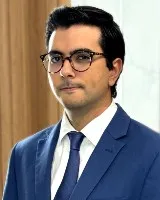
Alain is an S.J.D. student at the University of Michigan Law School. Prior to his S.J.D. studies, he completed his LL.M. at the University of Michigan Law School as a Grotius Fellow under a Fulbright scholarship (focusing mostly on capital markets, securities regulation, mergers and acquisitions, and transactional law) and his LL.B. (Magna Cum Laude) at the Universidad Iberoamericana (UNIBE) in the Dominican Republic, where he led his research on local securities regulation and necessary reforms for takeover bidding. He has been admitted to practice law in both New York and the Dominican Republic.
From a professional standpoint, he has gained practical experience in diverse environments, including De Camps, Vásquez & Valera Abogados, KPMG Dominican Republic, and serving as head law clerk at the Constitutional Court of the Dominican Republic for an Associate Justice. These experiences allowed him to serve as a researcher and advisor to key clients in capital markets, international taxation, and legal matters from various sectors (including the financial and energy sectors), and perform an active supervisory role in personnel, transactional drafting, due diligence proceedings, reviewing first-impression cases, aiding in the opinion drafting process, attending court proceedings, and in-depth contract drafting. Moreover, he has taught upper-level classes at the Escuela Nacional de la Judicatura.
Fields of Academic Interest
Alain’s areas of interest include: Securities Regulation, Law and Economics, Corporate Law, and Transactional Law.
Dissertation Project
His dissertation will focus on the current enforcement status of federal agencies, such as the Securities and Exchange Commission (SEC) and the Department of Justice (DOJ) by conducting an empirical analysis of the several causes of action that lead to civil, administrative, and criminal proceedings. The main focus is to note the factors that regulators weigh in pursuing securities enforcement and how those factors vary throughout different jurisdictions; and the convergence between the elements chosen by each agency.
Doctoral Committee
- Prof. Adam C. Pritchard , Frances and George Skestos Professor of Law, University of Michigan Law School - Committee Chair
Education
- LL.M. – University of Michigan Law School, Grotius Fellow, and Fulbright recipient (2020-2021)
- LL.B. (Magna Cum Laude) – Universidad Iberoamericana (UNIBE), Dominican Republic (2014-2018)
Languages
English, Spanish, French
Contact
-
Nadia Sussman
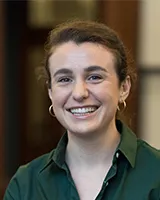
Nadia Sussman is a legal scholar from Aotearoa, New Zealand, undertaking her SJD at the University of Michigan Law School. She cares about how lawyers, laypeople and legal systems interact.
She did her undergraduate studies in philosophy and law at the University of Auckland. During this time, she provided pro bono legal support at the Auckland Community Law Centre and published scholarship in tort law and family law. Upon graduation, she worked as a judges’ clerk at te Kōti Matua o Aotearoa, the High Court of New Zealand. She then spent a year working as civil litigator, primarily on tort law matters (public nuisance and negligence in climate change litigation, and defamation). In 2024 she graduated from Michigan Law School’s LLM program.
Fields of academic interest
Sussman’s current areas of focus are: legal ethics; civil procedure; law and society; evidence law; and legal philosophy. She has also tutored, researched and published in tort law.
Dissertation project
Sussman’s dissertation will address the preparation by lawyers in New Zealand and other common law jurisdictions of “evidential documents”, such as affidavits, briefs of evidence, witness statements and will-say statements. By looking closely at the particular ways in which lawyers help clients communicate with courts, her thesis will provide a timely and holistic examination of the crux of lawyering – the representation, or speaking on behalf of, another.
Doctoral committee
- Professor Sherman Clark, Kirkland & Ellis Professor of Law, University of Michigan – Committee Chair
- Professor Maureen Carroll, Professor of Law, University of Michigan
- Professor Julian Webb, Melbourne Law School, The University of Melbourne
Education
- University of Michigan, Master of Laws, 2024
- University of Auckland, Bachelor of Arts (Philosophy) and Bachelor of Laws (Honours), 2020
- University of Edinburgh, 360° exchange, 2015.
Languages
English (native)Contact
[email protected] -
Francis Tom Temprosa
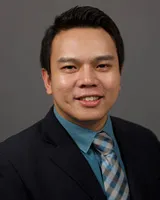
Tom Temprosa is a Michigan Grotius Fellow and an SJD candidate at the University of Michigan Law School where he also completed his LLM degree in 2017 as a DeWitt Scholar. During his LLM year, he was awarded The Jon Henry Kouba Prize for Best Student Paper (International Peace and Security Winner) and a Certificate of Merit for Impact of Human Rights on International Law under Prof./Judge Bruno Simma. He was also a Salzburg Cutler Fellow, representing the law school in an international law global seminar. In the same year, he got the S. James Anaya Award for Excellence in International Legal Scholarship. In 2015, the Carnegie Council for Ethics in International Affairs elected him as a Pacific Fellow.
Tom Temprosa is a faculty member of the Ateneo de Manila University Law School and a lecturer at the Far Eastern University Institute of Law in the Philippines. Aside from teaching, prior to coming to Michigan, he has worked for the UN and the Philippine government. He was Legal Adviser to the Commission on Human Rights of the Philippines and was designated its legal counsel before the Philippine Supreme Court. In the UN High Commissioner for Refugees, in different capacities from 2009 to 2013, he dealt with legal issues of refugee protection, statelessness, and internal displacement in man-made conflict and natural disaster situations. He has worked in other branches of the Philippine government: as Director for Legislation at the Office of the Majority Leader in the Senate, where he was involved with several parliamentary and law reform initiatives, and as an attorney (law clerk) at the Commission on Elections. He also engages in litigation and law firm practice.
He has led and published an ASEAN-wide research on the state of the rule of law amidst ASEAN integration. He co-wrote a book on disaster-related displacement and chapters on human security and internal displacement, judicial training, and violence, exploitation and discrimination against women and children. His works are published in the Arizona Journal of International and Comparative Law (forthcoming), Michigan Journal of International Law (online), Asian Journal of International Law, Ateneo Law Journal, Philippine Law Journal, Quilted Sightings, and Asian Yearbook of International Law. He is a recipient of the DILA Prize for Young Scholars by the Foundation for the Development of International Law in Asia for his work on the interface of international law in the Philippine court.
Fields of academic interest
International law, human rights, forced migration and refugee law, statelessness, humanitarian law, rule of law, and election and administrative law.
Dissertation project
Tom Temprosa aims to develop a framework to address the problem of standards of proof in the investigations of UN commissions of inquiry and fact-finding missions with Prof. Steven R. Ratner, who has extensive experience with UN fact-finding missions, as adviser.
Doctoral committee
- Prof. Steven R. Ratner, Bruno Simma Collegiate Professor of Law, University of Michigan Law School - Committee Chair
- Prof. Bruno Simma, Professor of Law, University of Michigan Law School
- Prof. Christine Chinkin, Emeritus Professor, Department of Law, The London School of Economics and Political Science
Education
- LLM, University of Michigan Law School, DeWitt Scholar, 2017
- JD, Ateneo de Manila University Law School, Honors (Silver Medal for Academic Excellence), Saint Thomas More Merit Scholar, 2010
- BA in Journalism, University of the Philippines Diliman, cum laude, 2006
Contact
Email: [email protected]
-
Hannah Van Dijcke
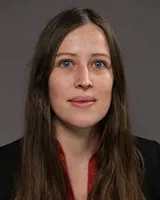
Hannah is a Michigan Grotius Fellow and an SJD student at the University of Michigan Law School. She obtained her first law degree at KU Leuven (Belgium). During her studies, Hannah completed two legal exchange programs conducting comparative law in different foreign languages. At Michigan, Hannah was awarded the Joris Fellowship, participated in the Program for International Law and Development, and acquired the Certificate of Pro Bono Service for her work with the Gender Violence Project and the Rohingya Human Rights Documentation Project.
Before joining Michigan Law in 2018, Hannah worked in the government sector. As a legal advisor at the Belgian Institute for Equality of Women and Men, she handled complex gender equality issues, advising both victims and the government. Together with the Deputy Director of the Institute, Hannah published an article analyzing the Belgian anti-sexism law from the Institute’s experiences. While working at the Institute, Hannah first noticed the legal vacuum around sexist hate speech.
Fields of academic interest
Hannah’s areas of interest include international and comparative law, human rights law, and equality law.
Dissertation project
Hannah’s research focuses on (online) sexist hate speech. Her dissertation project aims to put forward a framework for defining sexist hate speech and legally approaching it. An important component of her research work is a comparative analysis of the U.S. and E.U. legal framework on freedom of speech and sexual harassment.
Doctoral committee
- Prof. Don Herzog, Edson R. Sunderland Professor of Law, University of Michigan Law School – Committee Chair
- Prof. Catharine A. Mackinnon, James Barr Ames Visiting Professor of Law, Harvard Law School; Elizabeth A. Long Professor of Law, University of Michigan Law School
- Prof. Christopher McCrudden, Professor, School of Law, Queen’s University Belfast; L. Bates Lea Global Professor of Law, University of Michigan Law School
Education
- University of Michigan Law School (LLM, 2019)
- KU Leuven (Master of Law - Specialisation in Private and Commercial Law, 2017; Bachelor of Law, 2015)
- Université Libre de Bruxelles (Erasmus Belgica Exchange, June 2017)
- Humboldt Universität zu Berlin (Erasmus Exchange, February 2016)
Languages
- Dutch
- English
- French
- German
Contact
Email: [email protected]
